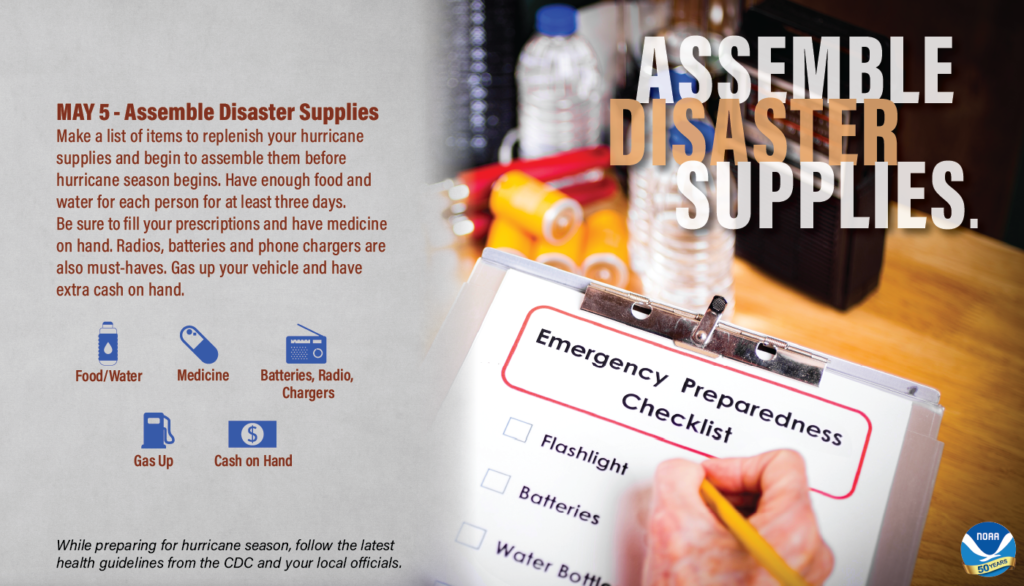
As part of Hurricane Preparedness Week, the National Hurricane Center and the National Weather Service as urging residents in areas vulnerable to tropical cyclone impacts to stock up on essential supplies now before a storm threatens them in the upcoming season. Atlantic and Central Pacific Hurricane Seasons begin on June 1. With the ongoing COVID-19 Pandemic, it is important that people prepare to stock-up as far in advance as possible with supply chains broken, stores closed, and common household goods on short supply.
“You’re going to need supplies not just to get through the storm but for the potentially lengthy and unpleasant aftermath,” the National Weather Service advises. “Have enough non-perishable food, water and medicine to last each person in your family a minimum of three days. Electricity and water could be out for at least that long. You’ll need extra cash, a battery-powered radio and flashlights. Many of us have cell phones, and they all run on batteries. You’re going to need a portable crank or solar powered USB charger.”
FEMA encourages people to develop a list of supplies residents may need should disaster strike in hurricane season. “As you prepare your plan, tailor your plans and supplies to your specific daily living needs and responsibilities. Discuss your needs and responsibilities and how people in the network can assist each other with communication, care of children, business, pets, or specific needs like the operation of durable medical equipment,” says FEMA. They encourage that these factors are considered when developing a plan and thinking of supplies that’ll be needed:
- Different ages of members within your household
- Responsibilities for assisting others
- Locations frequented
- Dietary needs
- Medical needs including prescriptions and equipment
- Disabilities or access and functional needs including devices and equipment
- Languages spoken
- Cultural and religious considerations
- Pets or service animals
- Households with school-aged children
With the pandemic here this hurricane season, the CDC is recommending that people bring with them at least 2 cloth face-coverings for each person and if possible, hand sanitizer, if they need to go to a public shelter. If people are evacuating to other locations, such as a hotel that may be open or to a friend or family member’s home, it’s important to bring the same, especially with existing quarantine restrictions in place.